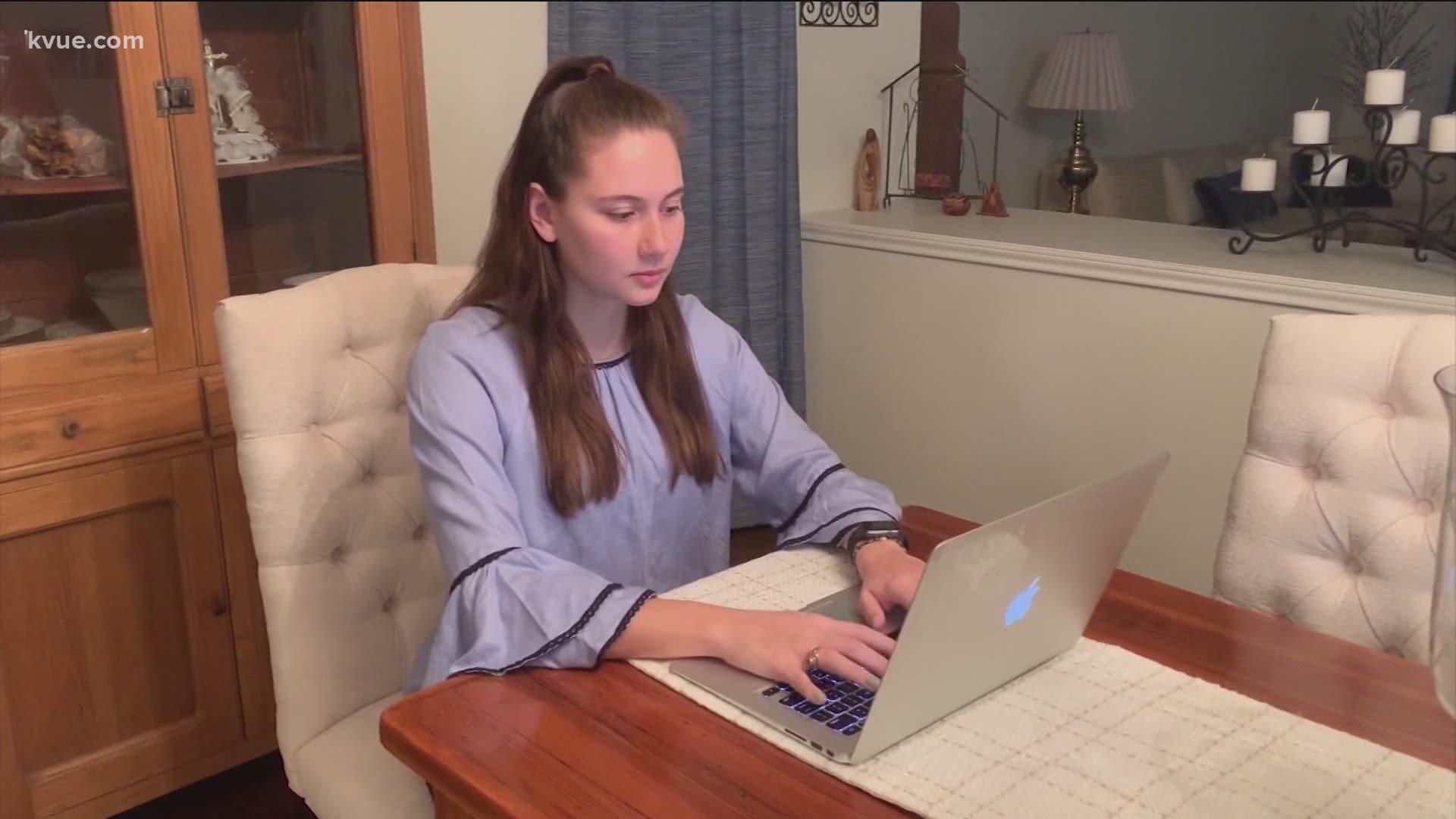AUSTIN, Texas — There are lots of challenges for volunteers helping track down people potentially exposed to COVID-19.
Federal health authorities on Friday talked about the lack of participation by patients and Travis County says many health records get faxed, not electronically shared, which forces volunteers to dig for information.
The comforts of home are all Rachel Clear needs to be a medical detective.
“We only had three people in the office and it was the day we learned about the flight from Cabo San Lucas where all the UT students got infected,” said Clear.
Since March, she's worked as a contact tracing volunteer coordinator with the University of Texas Dell Medical School. Helping trace one of the first cluster cases at UT – the 64 students who took a trip to Mexico. There are now hundreds of volunteers just like her.
“We ask them who they were in contact with for an extended period of time, which, for our standards, is 15 minutes or longer within 6 feet during their infection period,” she said.
The emotions are real.
“It can range from people being embarrassed because they've been out and about and have so many contacts, to people being frustrated because they did everything right and they still got sick,” said Clear.
As states begin to reopen, the challenges for contact tracers become greater. Dr. Anthony Fauci said during a National COVID-19 Task Force press conference Friday that 50-70% of patients don't participate in the contact tracing process. More people are going back to work and are out and about.
“During our shelter in place order, when most people were staying home and from social activities, almost all of the contacts that were provided to us were household contacts, and now you have somebody who went to a graduation party and then you have all of those people who were also in contact with those people,” said Clear.
As life changes around us, Clear hopes we recognize we're in this together.
“It has definitely been a roller coaster," she said.
PEOPLE ARE ALSO READING:

